That game on 26 September 1973 wasn't the first time I had seen Scotland play, but it is the first match I can remember them winning. It had such a huge impact on me, as an impressionable 15-year-old, that I kept the following day's newspaper. I still have it, and Allan Milligan's front page photo (above) of toothless Joe Jordan being congratulated by Tom Hutchison remains a classic image of unbridled Scottish celebration.
More importantly, the win raised Scotland's football aspirations. It gave us confidence that we could compete on the world stage - this was the first of five consecutive qualifications - and also helped to shift the traditional attitude that beating England in the British Championship was the most important game of the year.
Our World Cup qualifying group seems ridiculous by modern standards. Just three nations, with the amateurs of Denmark making up the numbers, and group winner qualifying for West Germany. Scotland under Tommy Docherty breezed past the Danes home and away, while the Czechs could only, inexplicably, draw in Copenhagen before putting six past them in Prague. With two games remaining, that unlikely draw made our target simple: win at Hampden to reach the World Cup finals, regardless of what happened in Bratislava the following month.
Simple? Hardly. 1973 had begun with a new manager, Willie Ormond, and an SFA centenary celebration game against our traditional rivals which turned into an embarrassing 5-0 rout; there would be another, albeit narrow, defeat at Wembley in May and by the autumn Ormond had lost five of his first six matches.
In the media, there was scant optimism, and Ian Archer in the Glasgow Herald was particularly gloomy: 'There is no reason to believe that the Scotland of 1973 can succeed where the Scotlands of 1961, 1965 and 1969 have failed before them,' he wrote. 'Only the old adage that hope springs eternal will comfort the impassioned and the patriotic.'
Nonetheless, the game was a sell-out, Hampden having been restricted to a crowd of 100,000. For the rest of us (particularly those like me with school to go to in the morning) there was the rare treat of a live broadcast on STV. It began ominously, a hard physical battle with no quarter given. I can still hear Arthur Montford intoning 'And that's disaster, absolute disaster for Scotland' as a nonsensical long shot from Nehoda evaded Ally Hunter's flap and crept in at the far post. It was 'a freak goal' according to the Scotsman. As half time approached, the hopes of the nation were revived as the big defender Jim Holton leapt above the Czech defence (and Denis Law) to head home a corner. All square at the break.
The second half was the stuff of legend. We saw a Scotland side which was disciplined, having to ensure there was no repeat of the opening goal while chasing a winner, and even the Scotsman's John Rafferty, not one for hyperbole, was 'thrilled to see this Scottish team play it with such composure'. In the 64th minute, Ormond replaced Kenny Dalglish with the robust figure of Joe Jordan, a game-changing move. Little more than ten minutes later, came the decisive moment: a Bremner shot hit the inside of the post and rolled agonisingly along the goal line and apparently to safety; but it came to Willie Morgan and his cross with the outside of the boot found the unmarked Jordan in front of goal, who found the net with ease. It was bedlam thereafter, a hysterical finale which lasted till the Norwegian referee blew for time. You can see the goals from the game on Youtube.
Denis Law, who made his debut just after the 1958 World Cup and had suffered through those desperate failed campaigns of the 1960s, gushed: 'I don't think I have ever been happier in my life.'
Below are the full front and back pages of the Scotsman, and while the paper is a bit yellowed with age, the memories remain fresh. In those days, football on the front page was something extraordinary, and that just about sums up what this meant.
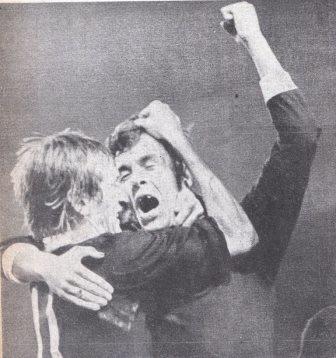
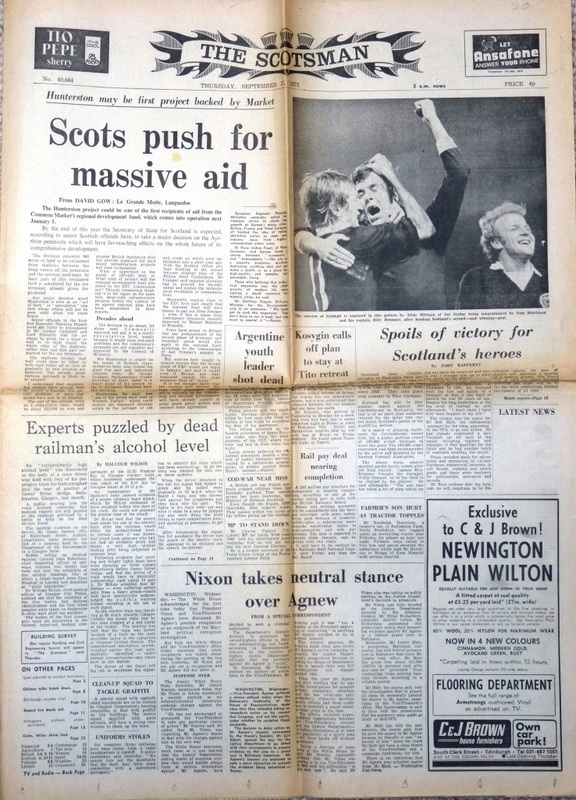
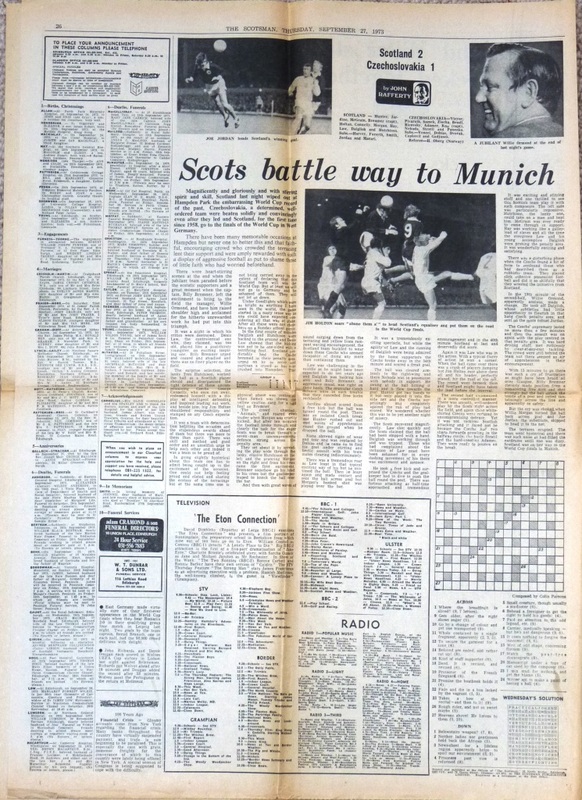
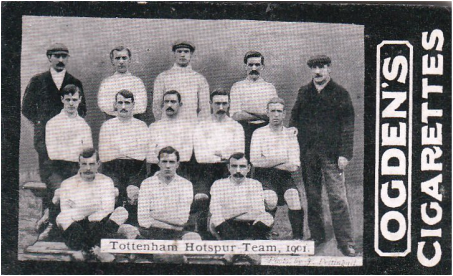
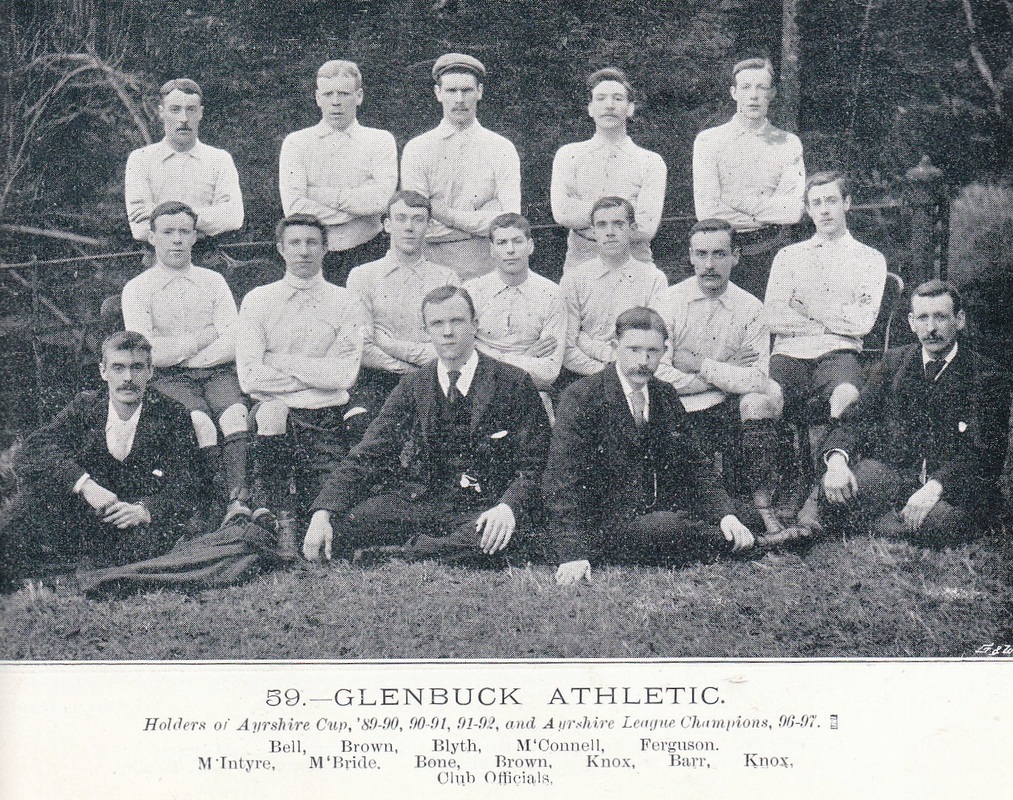
 RSS Feed
RSS Feed